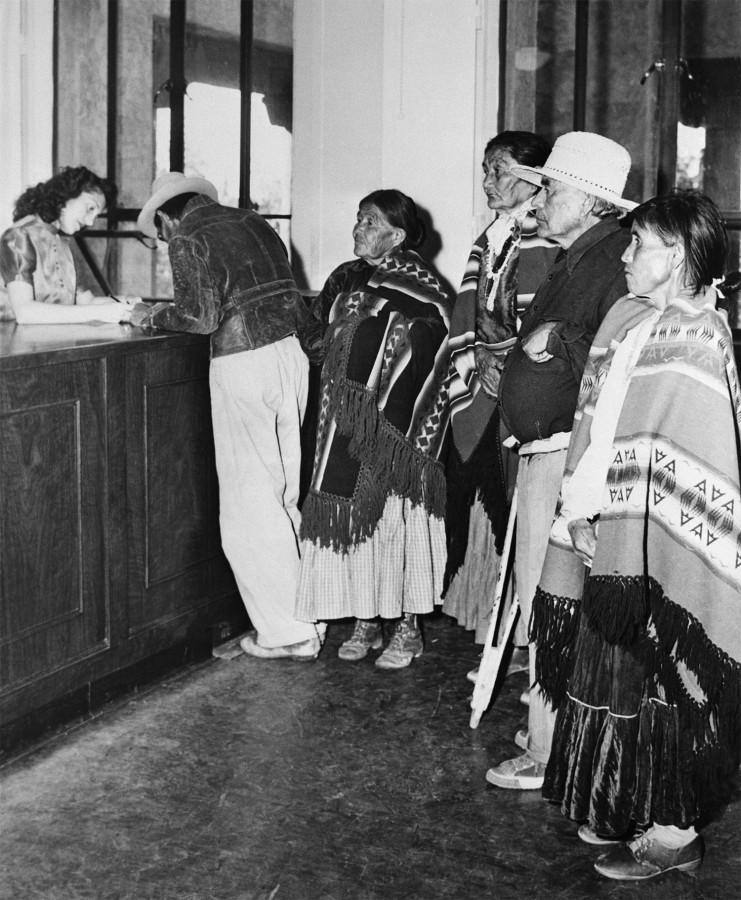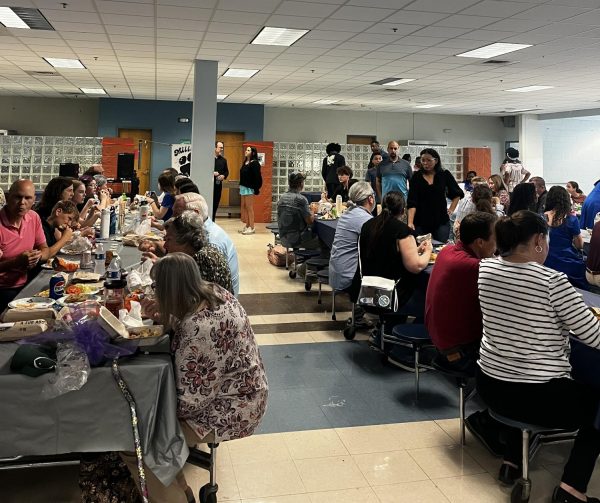Sound Opinions
Native American Rights over History
Waiting to register to vote, several Native Americans stand in line after the news of the Voting Rights Act passing reached them. Voting has always been a huge issue in the Native American community due in large part to the constant turmoil in the status of citizenship.
November 24, 2015
As Thanksgiving rolls around and we start to give thanks for our families and food, we should also take a moment to to give thanks to the rights that are unquestionably and undeniably ours by being citizens of this country. Considering how most of us are immigrants from other countries through ancestry or direct travel, it seems odd how the citizens who called this land their home long before Columbus took his disastrous trip in 1492 cannot say they have the same rights. Native Americans have been denied basic human rights and have been fighting for them since this country was founded.
Native Americans are citizens of their tribal nations as well as the United States. Those tribal groups are characterized under U.S. law as “domestic dependent nations,” which causes a special relationship to exist. This bond creates a tension between rights granted by the tribal sovereignty and rights that individual Native Americans retain as U.S. citizens. This status continues to create friction today, but was far more extreme before indigenous people were uniformly granted U.S. citizenship in 1924. Various laws and policies the United States government has passed, some tracing to the pre-revolutionary period, denied basic human rights. In particular, the areas of cultural expression and travel most heavily affected the indigenous people.
During the 19th and early 20th centuries, the U.S government attempted to control the travel of Native Americans off their reservations. Since Native Americans did not obtain U.S. citizenship until 1924, they were considered wards of the state and were denied various basic rights, including the right to travel. The Bureau of Indian Affairs (BIA) discouraged off-reservation activities, including the right to hunt, fish, or visit other tribes. As of the result, the BIA instated a “pass system” design to control movement of Natives. This system required Natives living on reservations to obtain a pass from an Native agent before they could leave the reservation. In addition, agents were often ordered to limit the number of passes they issued for off-reservation travel. The reasons the government gave for this limitation were that Natives with passes often overstayed the time limits imposed, and many times Natives left without requesting passes. When this occurred, the military was frequently called to force the Natives to return to their reservations.
When the Indian Civil rights Act (ICRA) passed in 1968, nicknamed the Indian Bill of Rights, Native Americans were guaranteed many civil rights they had been fighting for. Other rights such as sovereignty, hunting and fishing, and voting are still issues that Native people face today. Due in part to the sovereignty of the tribes and the unique relationship between the tribes and the United States Government, Native Americans were not uniformly allowed to vote until the Voting Rights Act was passed in 1965. There are still about 74 cases per year brought to court by Native Americans about voting discrimination in states.
The mission statement of the Native American Rights Foundation says, “We ask for nothing more, and will accept nothing less, than the U.S. government keeping the promises made to Native Americans.” With those words, I leave you to contemplate what you are thankful for this Thanksgiving.












